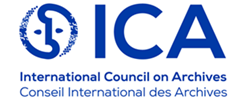Terms of Reference
1. Name
The name of the organisation is the Co-ordinating Council of Audiovisual Archives Associations. The acronym is: CCAAA.
2. Objectives
- To encourage, promote and enable the exchange of information between the member organizations
- To be a coordinating body and a supporting framework for outreach to the larger cultural heritage community.
- To encourage and support the regular occurrence of conferences and other events and projects on a global or regional basis, addressing issues of common concern to all member associations, within or outside the framework of other meetings.
- To provide the platform for the collective representation of member associations to international, government, and relevant non-governmental bodies.
- To seek to co-ordinate representational activity where this would be of general benefit to the audiovisual archive profession.
- To produce and/or endorse policy statements and position papers on key issues such as copyright, and technical standards
3. Membership
- a) Membership is open to organisations whose primary objective is the support of professional AV archive activities, and whose membership is primarily institutional and international (worldwide or regional).
- b) Admission to membership requires that the objectives of the candidate organisation and the CCAAA are in broad agreement. Membership applications will be decided by the Council and require approval by a 75% majority of existing Council members.
- c) As from 2012 there are two membership categories
- Category A members are associations whose main activity is audiovisual archiving, pay the full membership fee and have two votes on issues that are decided by ballot
- Category B members are affiliated associations whose activities include audiovisual archiving, pay a reduced membership fee and have one vote on issues that are decided by ballot
- The Council can grant Category B membership to organisations whose main activity is audiovisual archiving if the reasons put forward are deemed to justify this. A majority of 75% of members is required.
- d) Each member organisation should normally be represented by its President and Secretary General, but may by exception be represented by one or two formally mandated nominees.
- e) Because of common objectives on preservation of and access to the audiovisual heritage, UNESCO shall be invited to attend and to participate CCAAA meetings as an observer in order to ensure that objectives of CCAAA are disseminated as widely as possible in its member states. In return CCAAA will be invited to attend as observer strategic planning meetings within the CA sector at which UNESCO discussion development of its strategy on av archiving matters.
4. Organisation
- a) The CCAAA Executive is composed of the Secretary General, a formally mandated representative of the current chairing member association and a formally mandated representative of the immediate past Chairing association.
- b) The Secretary General shall be appointed for a term of three years, and can be renewable at the discretion of the Council. The duties of the Secretary General shall be to draw up the Agenda for the Council’s annual meeting in consultation with the Executive, to prepare the financial report in cooperation with the treasurer and to document meetings, to act as routine contact point with UNESCO, and to coordinate the dissemination of information between meetings.
- c) The Chairmanship of CCAAA will be allocated to member associations on a rotating basis, preferably for a term of two-years. The chairing organisation for the following calendar year will be negotiated at the annual meeting.
- d) CCAAA representation to international, government, and relevant non-governmental bodies is achieved by allocation by the Council of such representation to member associations
5. Meetings
- a) The Council meets once a year, and may for convenience schedule this meeting to coincide with the annual conference of one of the member organisations.
- b) A quorum will require the presence of two thirds of the membership.
- c) The appointed Secretary General will attend each meeting.
6. Decision-making
- a) Representatives of the member associations attending meetings must have mandates from their executive boards to vote on agenda items. The agenda will be circulated at least two weeks in advance of meetings.
- b) The CCAAA will aim for consensus when making decisions. Where issues are put to the vote a simple majority will apply. When a vote results in a tie, the chairperson has one additional casting vote.
- c) A two-third majority of Category A voting members present or represented will be required to dissolve the CCAAA, to approve of new members and to change to the Terms of Reference.
- d) The right to vote is exercised by member associations in good standing present at meetings (i.e. subscriptions and other obligations are paid and fulfilled up to date). Members in arrears can vote at meetings subject to payment of arrears at the beginning of a meeting.
7. Publications
- a) The CCAAA will publish from time-to-time position and policy papers, briefing notes, recommendations and similar documents.
- b) The CCAAA will maintain a website for the dissemination of information to members and to other interested parties.
8. Finance
- a) Each member organisation agrees that Council membership involves making a financial contribution to the CCAAA. This contribution, or subscription, should support the administrative costs of the Council. The full annual membership subscription fee for Category A members is €1000 per annum beginning in 2012. The reduced membership subscription for Category B members is set at €500 for 2012. Membership subscriptions are due by 1st June each year. Persistent arrears may result in the termination of membership by a vote of the Council.
- b) A budget will be prepared by the Chair and Secretary General for approval at each annual meeting. The budget may include a proposal for changes in membership contributions which are subject to approval by a simple majority of votes cast by the members attending the meeting.
- c) The Secretary General will prepare and table an annual statement of receipts and expenditure, and a balance sheet, at the annual meeting.
- d) The Council will submit bids to UNESCO and other grant-making bodies to support the costs of projects including publications, surveys, public relations and lobbying activities, training workshops, and website development.
9. Dissolution
Should the Council be dissolved, any funds held at that time will be distributed between the members in good standing at the time of dissolution. Category A members will receive an amount equal to twice the amount that Category B members receive.
Terms of Reference
1. Name
The name of the organisation is the Co-ordinating Council of Audiovisual Archives Associations. The acronym is: CCAAA.
2. Objectives
- To encourage, promote and enable the exchange of information between the member organizations
- To be a coordinating body and a supporting framework for outreach to the larger cultural heritage community.
- To encourage and support the regular occurrence of conferences and other events and projects on a global or regional basis, addressing issues of common concern to all member associations, within or outside the framework of other meetings.
- To provide the platform for the collective representation of member associations to international, government, and relevant non-governmental bodies.
- To seek to co-ordinate representational activity where this would be of general benefit to the audiovisual archive profession.
- To produce and/or endorse policy statements and position papers on key issues such as copyright, and technical standards
3. Membership
- a) Membership is open to organisations whose primary objective is the support of professional AV archive activities, and whose membership is primarily institutional and international (worldwide or regional).
- b) Admission to membership requires that the objectives of the candidate organisation and the CCAAA are in broad agreement. Membership applications will be decided by the Council and require approval by a 75% majority of existing Council members.
- c) As from 2012 there are two membership categories
- Category A members are associations whose main activity is audiovisual archiving, pay the full membership fee and have two votes on issues that are decided by ballot
- Category B members are affiliated associations whose activities include audiovisual archiving, pay a reduced membership fee and have one vote on issues that are decided by ballot
- The Council can grant Category B membership to organisations whose main activity is audiovisual archiving if the reasons put forward are deemed to justify this. A majority of 75% of members is required.
- d) Each member organisation should normally be represented by its President and Secretary General, but may by exception be represented by one or two formally mandated nominees.
- e) Because of common objectives on preservation of and access to the audiovisual heritage, UNESCO shall be invited to attend and to participate CCAAA meetings as an observer in order to ensure that objectives of CCAAA are disseminated as widely as possible in its member states. In return CCAAA will be invited to attend as observer strategic planning meetings within the CA sector at which UNESCO discussion development of its strategy on av archiving matters.
4. Organisation
- a) The CCAAA Executive is composed of the Secretary General, a formally mandated representative of the current chairing member association and a formally mandated representative of the immediate past Chairing association.
- b) The Secretary General shall be appointed for a term of three years, and can be renewable at the discretion of the Council. The duties of the Secretary General shall be to draw up the Agenda for the Council’s annual meeting in consultation with the Executive, to prepare the financial report in cooperation with the treasurer and to document meetings, to act as routine contact point with UNESCO, and to coordinate the dissemination of information between meetings.
- c) The Chairmanship of CCAAA will be allocated to member associations on a rotating basis, preferably for a term of two-years. The chairing organisation for the following calendar year will be negotiated at the annual meeting.
- d) CCAAA representation to international, government, and relevant non-governmental bodies is achieved by allocation by the Council of such representation to member associations
5. Meetings
- a) The Council meets once a year, and may for convenience schedule this meeting to coincide with the annual conference of one of the member organisations.
- b) A quorum will require the presence of two thirds of the membership.
- c) The appointed Secretary General will attend each meeting.
6. Decision-making
- a) Representatives of the member associations attending meetings must have mandates from their executive boards to vote on agenda items. The agenda will be circulated at least two weeks in advance of meetings.
- b) The CCAAA will aim for consensus when making decisions. Where issues are put to the vote a simple majority will apply. When a vote results in a tie, the chairperson has one additional casting vote.
- c) A two-third majority of Category A voting members present or represented will be required to dissolve the CCAAA, to approve of new members and to change to the Terms of Reference.
- d) The right to vote is exercised by member associations in good standing present at meetings (i.e. subscriptions and other obligations are paid and fulfilled up to date). Members in arrears can vote at meetings subject to payment of arrears at the beginning of a meeting.
7. Publications
- a) The CCAAA will publish from time-to-time position and policy papers, briefing notes, recommendations and similar documents.
- b) The CCAAA will maintain a website for the dissemination of information to members and to other interested parties.
8. Finance
- a) Each member organisation agrees that Council membership involves making a financial contribution to the CCAAA. This contribution, or subscription, should support the administrative costs of the Council. The full annual membership subscription fee for Category A members is €1000 per annum beginning in 2012. The reduced membership subscription for Category B members is set at €500 for 2012. Membership subscriptions are due by 1st June each year. Persistent arrears may result in the termination of membership by a vote of the Council.
- b) A budget will be prepared by the Chair and Secretary General for approval at each annual meeting. The budget may include a proposal for changes in membership contributions which are subject to approval by a simple majority of votes cast by the members attending the meeting.
- c) The Secretary General will prepare and table an annual statement of receipts and expenditure, and a balance sheet, at the annual meeting.
- d) The Council will submit bids to UNESCO and other grant-making bodies to support the costs of projects including publications, surveys, public relations and lobbying activities, training workshops, and website development.
9. Dissolution
Should the Council be dissolved, any funds held at that time will be distributed between the members in good standing at the time of dissolution. Category A members will receive an amount equal to twice the amount that Category B members receive.












